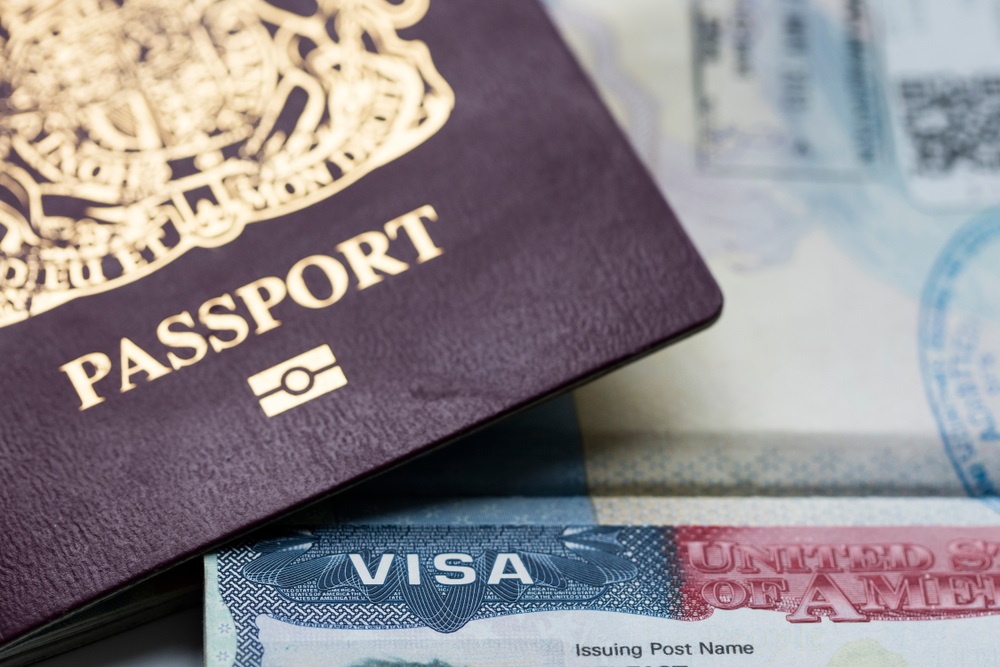What migration policies are there in the world?
At a time when migration policy is a hot political subject in France, what are the migratory measures applied in the world to attract or refuse immigrants?
Lack of manpower in certain key sectors or an aging population force different countries to attract foreigners to support their growth. But the populations are inhospitable towards migrants: social downgrading, “great replacement”, fear of Islam. A real headache for the rulers: what is the situation in the world?
United States: easing
The Biden administration sees immigration as a force for the United States. With the cancellation of many texts from the Trump era, millions of people already settled in the United States could obtain their naturalization.
The symbolic measure adopted recently is the creation of a mission to reunite separated families on the Mexican border. The new administration is working with various Central American countries to contain illegal immigration by working in particular on the causes of departure. Democrats have also offered to hand out the 400,000 permanent resident cards to add to the 140,000 permanent residence permits that are theoretically due to be issued in 2022.
Some low-rated cities in the United States, such as Topeka, Kansas, or Savannah, Georgia, offer settlement assistance of up to $ 15,000.
Canada: financial incentives
In neighboring Canada, the Quebec government plans to recruit nurses abroad and is particularly targeting France. On September 23, the government announced financial incentives totaling 690 million euros to recruit 4,300 nurses as quickly as possible and convince those already in post to stay.
The city of Toronto has relied on the establishment of foreign companies to attract qualified labor. The city ranks first for job growth in the high-tech sector, according to a ranking compiled by CBRE. It has experienced employment growth of 26 %. It includes the locations of major brands such as Google, Amazon, Netflix, Reddit, TikTok, DoorDash, Uber, Pinterest and Wayfair.
Quebec intends to welcome many more foreigners in 2022, if only to make up for the recruitment delays linked to the pandemic. Quebec will therefore welcome up to 52,500 foreigners in 2022. Certain sectors, such as the manufacturing sector, are calling for even greater openness.
Canada and the United States prohibit the practice of allowing migrants to enter one country on a travel visa and seek refugee status at the other country’s border through the Safe Third Country Agreement between Canada and the United States .
Australia: the permit on point
70% of immigrants in Australia are skilled workers, often younger, more educated than native Australians. These immigrants are an essential driving force. According to a study by the Ministries of the Interior and of Finance , 65% of the 850,000 jobs created in five years were by foreign residents.
Australia is one of the most cosmopolitan countries in the world with a population of 25.4 million, doubling in 40 years. 29.6% of the inhabitants were born abroad. This share is significantly higher than in France (12.5%) and the United Kingdom (13.8%). British origin has long been in the majority. It is now overtaken by immigrants from China, India, the Philippines and Vietnam.
The Australian model is a point-based permit formula, which are awarded on the basis of multiple criteria, such as the applicant’s age, educational qualifications, professional experience or level of English proficiency. The goal is to meet the needs of local businesses to promote the development of this immense country.
In contrast, Australia’s policy is draconian on illegal immigration. The government has opted for zero tolerance. Migrant boats were systematically turned back by Australian Navy vessels
Europe: contrasting migration policies
The new immigration law opens the doors of Germany to nationals of third countries wishing to work in fields such as health or IT. The doors of the Bundesrepublik are now open to skilled workers.
Germany: land of welcome
People with vocational training and with a minimum of resources have six months to find a job. In professions where there is a serious shortage of qualified workers, in the computer or medical fields, it is sufficient that a professional commitment has been made.
Under the Geneva Convention, the Federal Republic of Germany is obliged to accept people fleeing persecution from other countries.
Germany is the most popular immigration country in Europe. The condition for obtaining a work permit is that foreign applicants must have a minimum of German language skills.
Portugal: change image
Portugal wants to change the image of a country that boils down to tourism and tax benefits. The official policy to attract immigrants relies on digital technology, and the aura of a country turned towards new technologies.
This is how Google is setting up a technical support center in greater Lisbon, to create 535 in 7,000 square meters of modern offices from June 2022. The American giant ultimately expects the creation of 2,000 jobs.
Amazon has been negotiating for a year to set up a service center in Porto to create 250 skilled jobs. Jeff Bezos plans to invest in a building in the Portuan district of Boavista where his group would benefit from the creative dynamism of northern Portugal.
A new global passion: attracting digital nomads.
These expatriates could be 1 billion by 2050 according to the Inter-American Bank.
In Georgia, a program has been created to entice digital nomads to come to the country for at least a year and take advantage of the particularly low cost of living in Tbilisi, the capital. The “Work remotely from Georgia” program has already attracted more than 2,000 expatriates last March.
Since January 1 , Croatia has offered specific one-year residence permits to non-European teleworkers. The idea was picked up in Spain, where the government has proposed to introduce a special digital nomad visa, which has yet to be studied by Parliament.
In Italy, the towns of Rieti and Santa Fiora, both struggling to keep their population, have announced aid to remote workers ready to settle there which results in a discount on rents.
Thailand offers a four-year visa for remote workers. Bali goes even further, encouraging digital nomads to stay on the island for up to five years.
Currently, more than 80 million people around the world have had to leave their homes to flee war, persecution or conflict, almost half of them under the age of 18. A quarter of them take refuge in other countries. More than 30 million fled the consequences of climate change in 2020, and the number of displaced people continues to increase every year. Currently, 86% of uprooted people live in developing countries, with Germany being the only European country among the main states receiving refugees.
André Perrissel


